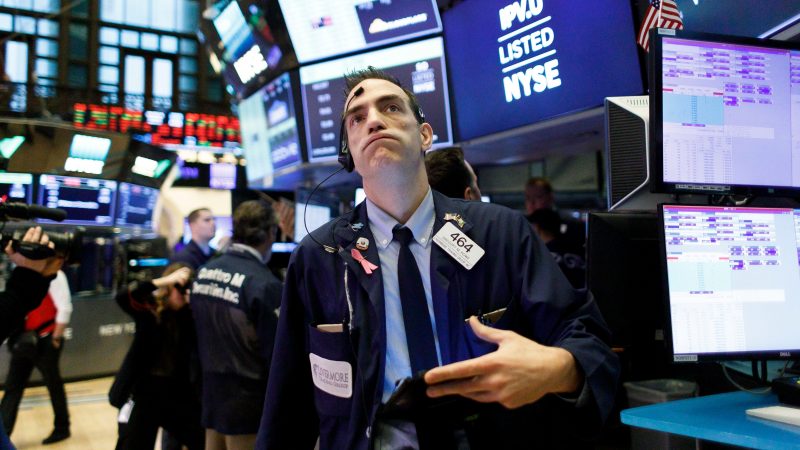Equity markets in Europe and New York fell Tuesday following another report showing red-hot US inflation, while oil prices pushed higher.
The consumer price index surged 8.5 percent in March compared with a year ago, the biggest jump since December 1981. CPI climbed 1.2 percent over February’s level.
The report was the first to fully encompass the shock caused by Russia’s operation in Ukraine and Western sanctions against Moscow, which have caused energy and food prices to spike worldwide.
Higher prices for food, shelter, and fuel are “likely forcing some people to do without,” said economist Joel Naroff.
Though the Federal Reserve is poised to raise interest rates quickly to tamp down inflation pressures, the effects would not be immediate.
“Inflation should moderate, if only because some of the biggest increases are behind us. But there is a difference between decelerating and low,” Naroff said.
“Since monetary (policy) works with a lag, don’t expect major progress on the inflation front even if the Fed acts aggressively.”
US equities initially climbed on the inflation data, with some analysts appearing to view the report as corroborating the “peak inflation” narrative based on the idea that pricing pressures will soon ease.
But stocks lost steam later in the session, with the S&P 500 finishing 0.3 percent lower. Some analysts pointed to nervousness heading into the earnings season.
Shares of large banks fell more than one percent ahead of quarterly results, which kick off Wednesday morning with JPMorgan Chase.
Analysts expect banks to report lower earnings compared with last year when profits were lifted by the release of funds set aside early in the pandemic in case of bad loans.
Meanwhile, European markets fell, with London’s FTSE 100 ending the day down 0.6 percent. Frankfurt off 0.5 percent, and Paris shedding 0.3 percent.
READ ALSO: Americans protest US involvement in the ouster of Pakistan PM Khan
Oil prices advanced more than six percent, lifting US benchmark West Texas Intermediate back above $100 a barrel.
“The crude correction ended now that the market has mostly priced in the strategic petroleum release plan, China is beginning to lift some of their lockdowns and as negotiations between Russia and Ukraine appear to have hit a dead-end,” said Oanda’s Edward Moya.
“The energy market expects to remain very tight from the summer and if geopolitical risks remain elevated, $100 oil should easily hold.”













